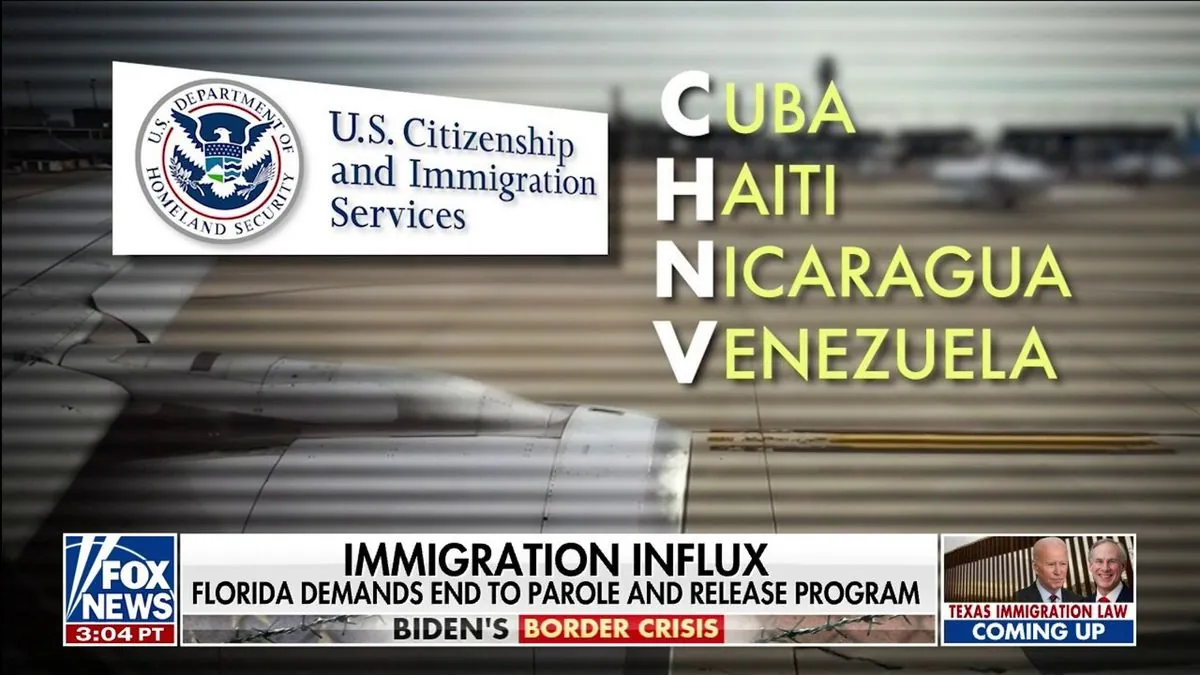Biden Administration Announces Expiry of Immigrant Parole Program
The US government clarifies the temporary nature of the parole program for immigrants from four countries. Those without alternative status must leave after two years, despite program's success in reducing illegal crossings.

The Biden administration has announced that immigrants from Cuba, Haiti, Nicaragua, and Venezuela who entered the United States through a parole program will need to depart once their two-year permits expire if they haven't secured another means to remain in the country.
This parole program, established in 2022 for Venezuelans and extended to the other nationalities in 2023, was designed to address the surge in unlawful border crossings. The initiative allows individuals from these countries to apply for legal entry through U.S. sponsors, traveling on commercial flights rather than attempting dangerous border crossings.

Officials report a remarkable 99% reduction in illegal crossings from these four countries since the program's inception. As of August 2024, over 530,000 people have entered the U.S. through this channel, with the majority coming from Venezuela and Haiti.
The parole program, which continues to accept up to 30,000 new applicants monthly, is rooted in federal authority created in 1952. This authority allows the executive branch to admit individuals on an emergency basis who wouldn't otherwise be eligible for entry. Biden has utilized this power more extensively than any previous president, sparking political debates.
While the announcement has drawn criticism from Republicans and concern from immigrant advocates, it's important to note that many participants have alternative pathways to remain in the U.S. For instance:
- Cubans can apply for permanent residency under the 1966 Cuban Adjustment Act.
- Venezuelans and Haitians may be eligible for Temporary Protected Status (TPS), allowing them to stay until September 2025 and February 2026, respectively.
- All participants can apply for asylum or other forms of humanitarian relief.
TPS, a program created by Congress in 1990, provides temporary residence for 6 to 18 months to individuals from countries experiencing emergencies such as war or natural disasters. As of September 2024, over 544,000 people from Venezuela and Haiti have been granted this status.
"It's not shutting down the program. It's putting them on notice that, 'Hey, you should get that asylum application in. You should talk to a lawyer. You should explore all your options.'"
The Department of Homeland Security emphasizes that the two-year period was intended to allow individuals to seek humanitarian relief or other immigration benefits. Those who haven't applied for alternative status may face removal proceedings after their parole expires.
However, experts suggest that only a small number of people are at immediate risk of losing their parole status. Even for those facing potential deportation, the process could take years due to severe backlogs in immigration courts and difficulties in repatriating individuals to certain countries, such as Nicaragua, which doesn't readily cooperate with U.S. deportations.
It's worth noting that the program was briefly suspended in 2024 due to fraud concerns but was reinstated in August with enhanced safeguards. As the situation evolves, it remains a focal point in the ongoing debate surrounding U.S. immigration policy.


































